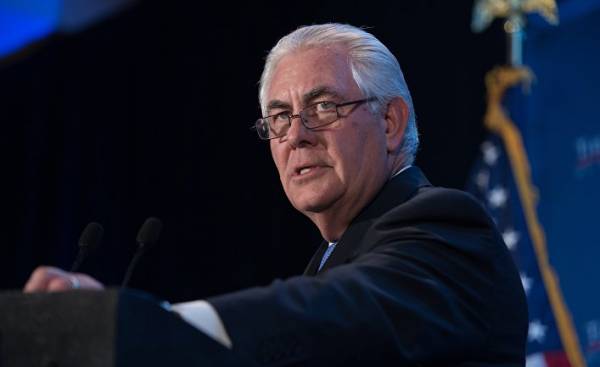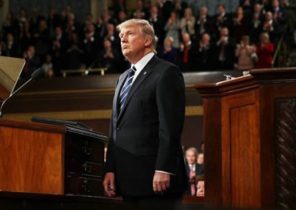
Although President trump still criticized Vladimir Putin publicly, his aides descended on the Kremlin for tolerance and possible complicity in the attack Syria with chemical weapons. White house aides even condemn the “fake news”, with which Moscow is trying to sow confusion about the use of nerve gas sarin by the regime of Bashar al-Assad, that is certainly a change after the usual repetition trump Russian disinformation.
If the administration will finally begin to form a more realistic view of Putin and the threat that it poses to the basic interests of the United States, it is welcome. However, it seems that the new administration has a lot to learn. On the way to Moscow on Tuesday, Secretary Rex Tillerson joined their criticism of Russia and the statement that “we see no future role for Assad regime in the long term,” expressing “hope” that Russia will decide to withdraw from the Union with Damascus and Iran, and, instead, “will review relations with the United States and other Western countries” who “seek to resolve the Syrian crisis.”
Perhaps Tillerson read the script of his predecessor, John Kerry. For many years Kerry stubbornly repeated the phrase that Russia must make the choice in Syria between the Assad regime and those who seek for peace, and again and again, Putin chose Damascus. This will not change just because Washington is now a new administration. As explained in the comments for The Post Philip Gordon (Philip Gordon), a former senior official in the Obama administration, Putin is against “regime change” in Syria or elsewhere, where the West seeks to eliminate the dictator. In addition, the new influential role of Russia in the middle East, including its Syrian base, protected by the land forces under the control of the Iranians, which makes the rupture of the Alliance Moscow-Teheran unthinkable for Putin.
If Tillerson really wants Russia switched sides, he will need to get something vainly sought Kerry — leverage, which can provide only US military action that could undermine the Assad regime. Single launch cruise missiles won’t do: the U.S. will need to destroy the rest of the Syrian air force and greater support for non-extremist rebels on the ground. It’s a lot harder to do than in 2012 and 2013, when Obama decided to do nothing; among other things, now the risk of a direct military conflict with Russia.
A more modest goal of US diplomacy would be to negotiate with Russia about de facto division of Syria into areas controlled by the regime, Western-backed rebels and Kurds, with a long cease-fire be binding on all parties. Meanwhile, Russia was able to collect and destroy chemical stockpiles that still remain at the disposal of the Assad regime. This, at least, would spare Syrian citizens from further atrocities and could concentrate military efforts on the fight against “Islamic state” and “al-Qaeda” (an organization banned in Russia — approx. ed.). But as you could tell Kerry Tillerson, even that will not admonish Putin, while the United States does not want to show greater determination.







